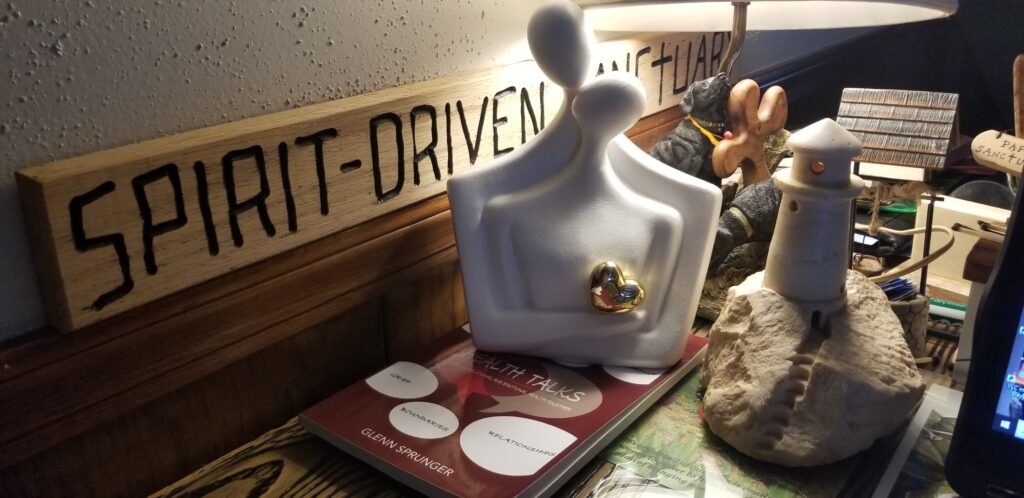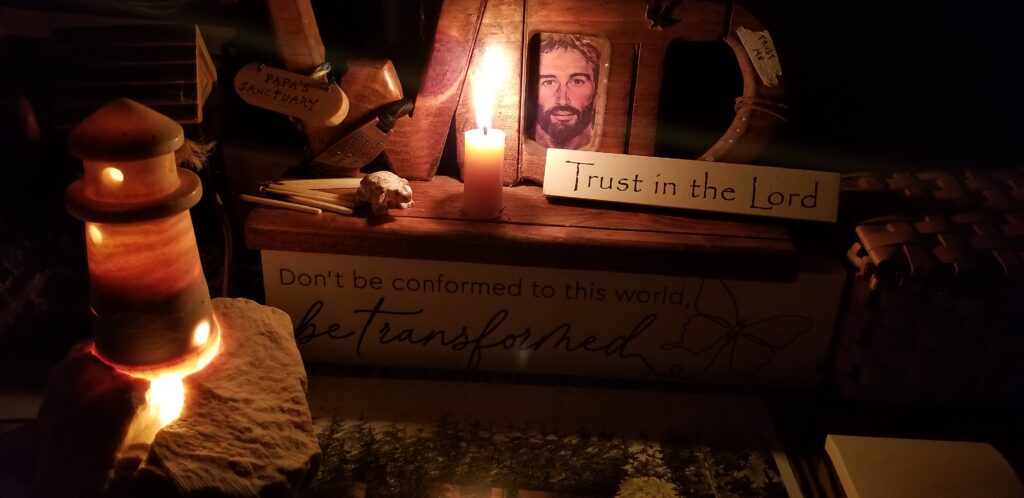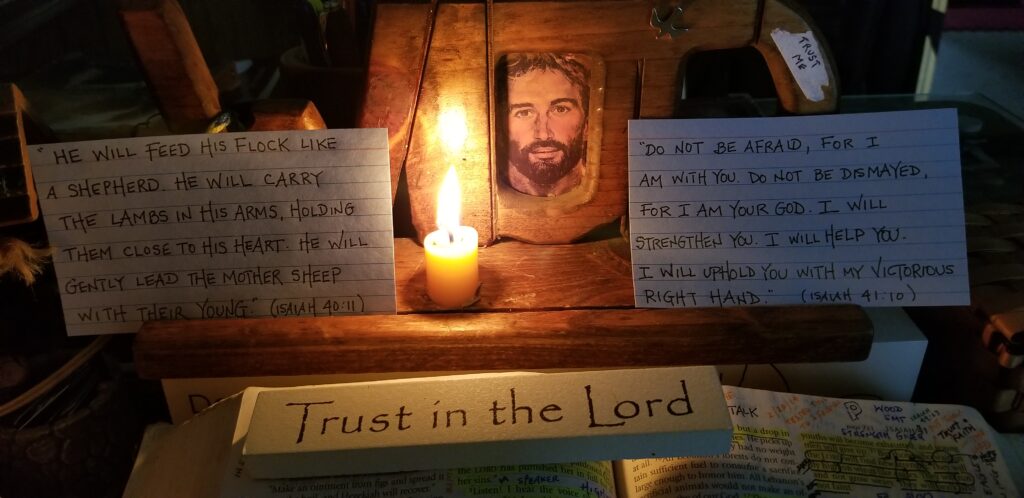
As I continue to come alongside hurting people, I notice how some people with damaged trust push people away, while others cling to anyone or anything that makes them feel good. When children are raised by absent, detached, controlling, angry, anxious, or ambivalent caregivers, they may struggle to trust God, trust themselves, or trust people. Sometimes they turn to animals or to things for comfort and safety because they’ve found that people are not trustworthy.
Boundary problems arise when caregivers can’t hear “NO” or can’t say “NO.” When caregivers can’t or won’t hear or say “NO,” they can abuse or enable their children. They can force children to do what’s not good for them. They can always be gone and turn to something that makes them feel better like work, sports, music, cleaning, eating, drinking, people, drugs, helping people, or technology. They can also give their children what they want instead of what they need. What if you grow up getting what you want but don’t get the relational and consistent love that you need? Then you get attached to stuff and detach from people. If caregivers hurt you instead of helped or held you, you won’t trust people or love.
It can lead to children who are anxious people-pleasers, detached and lonely, perfectionistic-striving for parental love or affirmation, workaholics, or technoholics who can’t stop, feel, connect, or love. If you find yourself thinking, “If I just had ___________ in my life, then I’d happy,” you probably have attachment issues that God wants to heal.
Boundary problems also develop when caregivers can’t say “YES” or can’t hear “YES.” Detached, emotionally-absent, neglectful, or hurtful parents can wound their children because they can’t or won’t give love. Controlling parents can place unrealistic expectations on their children or withhold love until children say or do whatever makes the parents happy. They can be so detached from or consumed with themselves that they withhold love and affection or are unable to feel or to show love. Kids are smart. They learn how to play the games, or they may eventually get sick-and-tired of the games and refuse to play. The problem is that when they grow up, they may continue to play the games and to use people to get what they want or refuse to turn to anyone because they just don’t trust people or love. Children who never bonded or received healthy love may wear themselves out trying to feel good enough, or they may just give up and turn to anything that makes them feel good in the moment. They can be angry, bitter, anxious, or depressed. They may not know how to receive or how to give love.
God is love. God made us in His loving image to have close relationships with Him and with one another. We were made to reflect and to show God’s love. Jesus sacrificed His life to demonstrate just how much God loves us. He paid the price for our sins to set us free to live and to love. Nothing can ever separate us from His love. God chose to make His home in the hearts of those who believe and follow Him. God has also called us to be ministers of reconciliation who welcome broken and hurting people into a life-changing relationship with God through Jesus Christ. When our hearts and homes are safe places with good and consistent boundaries, people can find safety and love and can discover that’s what we’re made for.
The problem is that way-too-many people who know and believe these things have been raised by people who were off, and, therefore, we are off. They were raised by people who taught the truth, but somewhere along the way exchanged the truths for lies and worshiped what was created instead of the Creator, and so do we. They may have heard and know the truth, but what they experienced and came to believe in their hearts, was much different. How many people do you know who push away and say, “I’m fine” or “I’ve got this” or “I don’t want or need your help” when you try to help them or to show them the love of Christ? Pride and control, fear and mistrust, busyness and bitterness can all get in the way of getting close and of developing trust-based, close relationships with God and with one another.
But what happens when Jesus and people who are loving just won’t go away? They’re relentless. They keep showing up through encouraging words on your phone. They keep showing up at your doorstep when you need it most but least expect it. They show up with food or unexpected blessings or kindness, yet you just don’t know what to do with them. What happens when you push away, but they just don’t go away? When the love of God wins you and transforms you, you can’t keep it to yourself. When the concept of God’s love in your mind gets fused with the experience of God’s love in your heart, you won’t be able to contain God’s love. You have to give it away each day. When you finally give up and stop fighting God’s love shown to you in the loving and tangible expressions of God’s flawed people, you eventually realize that Jesus loves you, period. Just the way you are. Not because of your past or what you or people did or didn’t do. Jesus loves you because you are His beloved child. You are made in God’s loving image to receive His love, to love God, and to love the people around you.

If you’ve gone astray, are a little off, or if you’re tired of fighting love and not trusting anyone, maybe you’re close to giving up or giving in. Why not surrender to God’s love?

His perfect love casts out all fear.

I don’t love anyone perfectly. I just try to fill up, fuel up, and show up each day with Jesus’ love and let Him do the rest. Why not reach out today to God and to someone who cares about you? Watch what God does when you let yourself trust God’s love and trust the love of those nearby who are trustworthy—those with healthy intact boundaries.
Who do you need to forgive in order to trust and to be free?
Where do you need to forgive yourself?
What does God love about you?
What do you love about yourself?
What’s your favorite way to show love to God and to His people?
What are the messages you need to stop and to start giving yourself?
